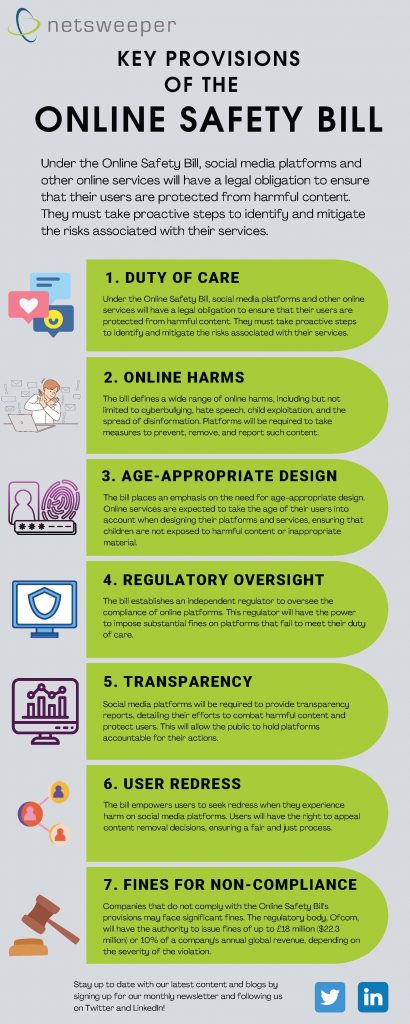In an age where the digital landscape is an integral part of our daily lives, ensuring online safety has never been more crucial. The UKs long debated Online Safety Bill (OSB) has reached a significant milestone with its approval by the House of Lords, paving the way for it to become law. This development underscores the government’s commitment to fostering a safer digital landscape by holding online platforms accountable for the content they host. The OSB’s journey through the legislative process has been marked by extensive deliberations, reflecting the complexities of regulating the digital realm. As it moves closer to enactment, the bill heralds a new era of online accountability, bringing with it both hope for a safer online environment and the challenge of striking the right balance between protecting users and preserving freedom of expression in the digital age.
Understanding the Online Safety Bill
The Online Safety Bill, a landmark piece of legislation, represents a significant step forward in the realm of digital governance. The bill is intended to address the growing challenges associated with online harm and the dissemination of harmful content; the bill introduces a comprehensive set of measures to foster a safer online environment for users. At its core is the establishment of a “duty of care” for online service providers, placing the responsibilities on these platforms to prioritize the safety of their users. This entails swift action in removing or restricting access to harmful content, thus holding tech companies accountable for the content on their platforms, which is a notable shift from the era of self-regulation.
Moreover, the bill introduces a dedicated regulatory body, the Online Safety Regulator, to ensure compliance with its provisions. Transparency is a fundamental principle, with stringent reporting mechanisms in place for users to report harmful content. Special attention is given to the protection of children online, with measures aimed at bolstering age verification and providing age-appropriate content. While concerns remain regarding the potential impact on freedom of speech and the practicality of enforcement, the Online Safety Bill underscores the urgent need for a coordinated effort among governments, tech companies, and civil society to strike the right balance between online safety and free expression in our constantly evolving digital landscape.
Key Provisions

Implications of the Online Safety Bill
The implications of the Online Safety Bill are far reaching and transformative. The bill must carefully navigate the balance between safety and freedom of expression. The bill’s focus on creating a safer digital environment, particularly for children, is commendable but may pose challenges regarding potential over-censorship. Moreover, its global impact could influence digital safety standards beyond the UK’s borders. The bill highlights the need for a unified approach to address the complex landscape of online safety and free expression.
- Elevated Accountability: The Online Safety Bill signifies a major shift in the landscape by holding tech companies accountable for the content on their platforms. This marks a departure from the era of self-regulation that has prevailed for so long.
- Enhanced Digital Safety: By targeting the eradication of harmful content, the bill aims to create digital spaces that are safer for all users, with particular attention given to protecting children and those vulnerable to online threats.
- Balancing Act with Freedom of Expression: Critics argue that the bill may encroach on freedom of speech, potentially leading to over-censorship. Striking a balance between safety and the preservation of free expression remains an ongoing challenge.
- Global Influence: Given the global presence of major tech companies, the Online Safety Bill’s effects may ripple beyond the UK’s borders, influencing digital safety standards worldwide.
Netsweeper’s Role in the Online Safety Bill
Netsweeper’s solution is aligned with the goals of the Online Safety Bill. Our content filtering, age verification, user reporting, and data analysis tools align seamlessly with the bill’s provisions. These solutions empower platforms to efficiently filter harmful content, protect children, and respond to user reports swiftly. With the flexibility to customize their approach, Netsweeper aids online platforms in meeting the bill’s diverse requirements, fostering a safer online environment.
The forthcoming enactment of the Online Safety Bill is another sign of governments across the globe looking to make the internet safer for their citizens. While valid concerns remain regarding its potential impact on freedom of speech and the complex landscape of enforcement, the bill’s primary mission—to combat harmful social media content—is a noble and necessary endeavor. As the bill approaches realization, it underscores the importance of collaborative efforts among governments, tech giants, and civil society to navigate the intricate terrain of online safety and free expression in our ever-evolving digital era.
